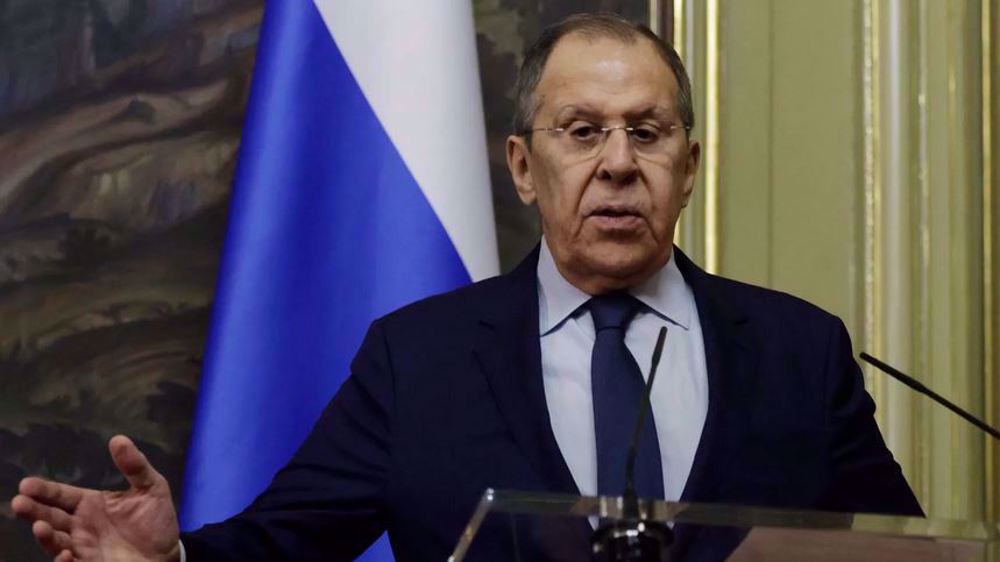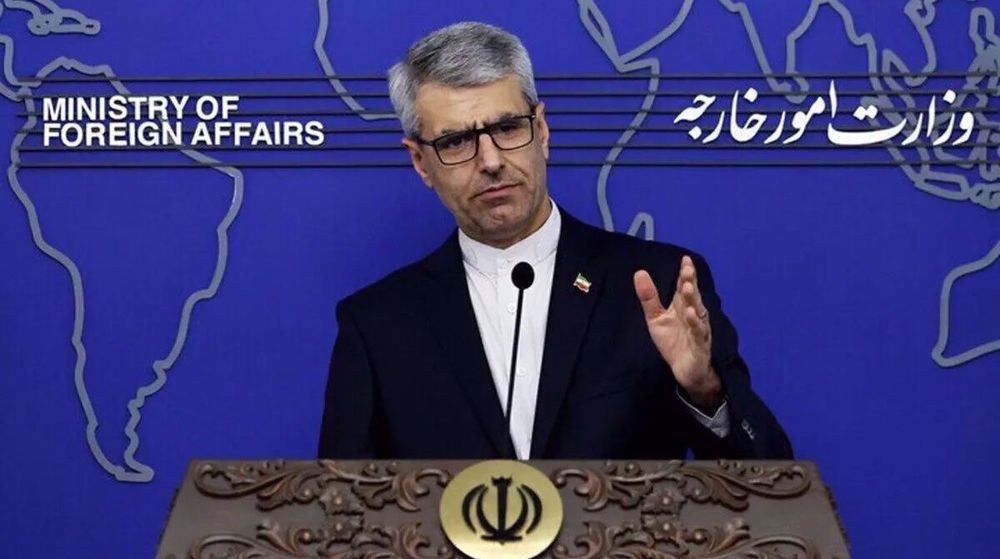Iran: European signatories must take practical steps to implement JCPOA
Iran's Foreign Ministry spokesman says European signatories to a 2015 nuclear deal with Iran, officially known as the Joint Comprehensive Plan of Action (JCPOA), must take practical steps to facilitate implementation of the agreement.
Abbas Moussavi made the remarks on Monday while reacting to a statement issued by the three European signatories to the JCPOA – the UK, France and Germany – a day earlier.
“What Iran expects from the European parties to the JCPOA is to take practical decisions and steps, in an effective and responsible manner, to facilitate its implementation,” the Iranian diplomat said.
On Sunday, France, Britain, and Germany issued a statement, calling for the resumption of dialog and an end to the escalation over Iran’s nuclear deal.
The three European parties to the landmark accord expressed concern that the 2015 deal could potentially collapse following renewed sanctions by the United States and Iran’s decision to scale back some of its commitments in retaliation for the US’s unilateral withdrawal and the imposition of the sanctions.
“The risks are such that it is necessary that all the parties take a pause and think about the possible consequences of their actions,” the statement said, adding, “We are concerned by the risk that the JCPOA further unravels under the strain of sanctions imposed by the United States and following Iran’s decision to no longer implement several of the central provisions of the agreement.”
Elsewhere in his remarks, the Iranian Foreign Ministry spokesman stressed that voluntary measures that Tehran has so far taken in compliance with the historic deal are based on the Islamic Republic’s goodwill and rooted in reciprocal rights and obligations asserted in the JCPOA, therefore, Tehran’s living up to its commitments should not be viewed as a “one-way road.”
Iran’s President Hassan Rouhani announced on May 8 the suspension of some of the country’s commitments under the JCPOA, precisely a year after the United States unilaterally withdrew from the deal.
Moussavi said expecting Tehran to return to the situation before May 8, 2019, would be “irrational” and runs counter to the spirit and content of the JCPOA as long as there is no serious political will on the part of European signatories to the JCPOA to take practical steps and create a balance in mutual commitments so that Tehran would be able to reap the economic benefits from the lifting of the sanctions as promised under the agreement.
Moussavi also reiterated that Tehran remains committed to the accord for as long as the other parties honor their commitments accordingly.
The remarks came on the same day that European foreign ministers met for talks on the Iran nuclear deal in Brussels, with Britain saying there was still room for diplomacy but warned that the "small window" to save the accord was closing.
British Foreign Secretary Jeremy Hunt, who held phone talks with his American and Iranian counterparts over the weekend, however, said "the deal isn't dead yet.”
France's Foreign Minister Jean-Yves Le Drian also said that Europe had to remain united in trying to save the nuclear deal, calling on Tehran to reverse its decision not to comply with parts of the accord.
"The Europeans have to stay united on this issue," Le Drian added.
Earlier on Monday, the spokesman for the Atomic Energy Organization of Iran (AEOI) said Tehran is planning to go back to the conditions preceding the landmark 2015 nuclear deal unless European signatories fulfill their obligations.
Behrouz Kamalvandi said Tehran’s retaliatory decision to reduce some of its commitments under the JCPOA is within the framework of the accord which says if one side fails to deliver on its commitments, the right is reserved for the other party to reconsider its obligations.
“If the Europeans and the United States do not fulfill their commitments, we will balance out their actions under the deal by reducing commitments and taking the conditions back to how they were four years ago,” he said.
The JCPOA was originally signed between Iran and six world powers — namely the US, the UK, France, Russia, China plus Germany. Washington, however, unilaterally withdrew in May 2018.
All the other parties to the deal have been critical of Washington’s move and have been holding meetings with Tehran to discuss how they can make the pact work properly for the Iranian side as well, but the talks have made little progress.
Tehran has said it would potentially scrap the deal if the remaining signatories -- mainly the Europeans -- fail to deliver on pledges to protect bilateral trade from US sanctions against Iran.
Iran, which had been fully complying with all of its commitments despite the US pullout and the European shortfalls, announced on July 7 that it was set to increase enrichment purity to levels higher than 3.67 percent after the European parties missed the deadline.
Alawite women abducted and raped, others sold by Jolani's men: Report
Iran, China, Russia hold trilateral talks on Geneva nuclear negotiations
VIDEO | Protests and skepticism greet Trump’s 'Board of Peace'
Envoy to UN: Iran will ‘decisively’ defend itself against aggression
VIDEO | Press TV's news headlines
VIDEO | Muslims across India begin holy month of Ramadan
Hamas condemns Trump's 'Board of Peace' meeting
Iran and Saudi FMs discuss outcomes of latest indirect Iran-US talks



















 This makes it easy to access the Press TV website
This makes it easy to access the Press TV website